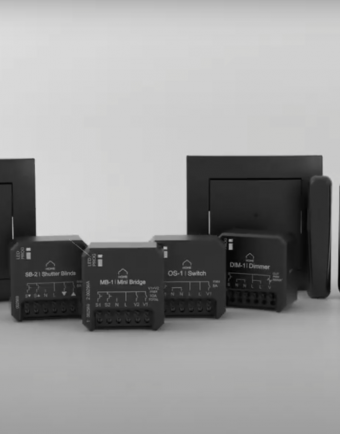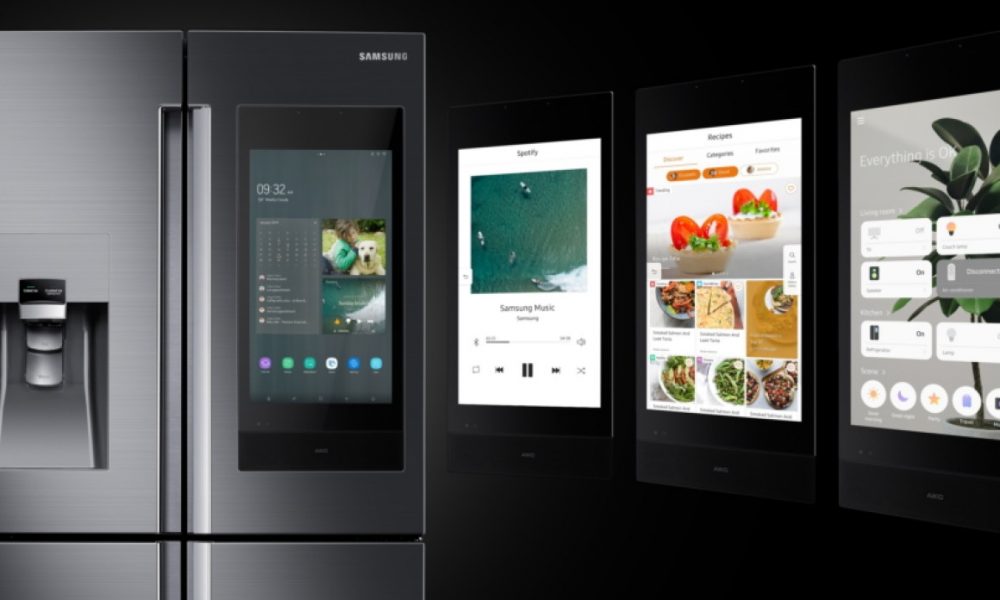

Přejít k obsahu | Přejít k hlavnímu menu | Přejít k vyhledávání

Is smart technology in homes simply science-fiction and the pious desire of technology makers, or a real thing that almost everyone will soon meet in their homes? According to Pavel Mizera of Samsung, the second opinion is valid. The break through should occur according to his estimates, sometime between 2020
Is smart technology in homes simply science-fiction and the pious desire of technology makers, or a real thing that almost everyone will soon meet in their homes? According to Pavel Mizera of Samsung, the second opinion is valid. The break through should occur according to his estimates, sometime between 2020 and 2021.
“They not only register numbers from the world where the whole market has been growing at exponential speeds for the last few years and it practically doubles turnover every year, but above all the infrastructure is ready-made. The situation is different for example with electric vehicles. Although today electric vehicles are developed, the infrastructure is not yet sufficiently developed and is therefore not widespread. For smart home appliances, the situation is different. Networks such as Lora, SigFox, NB-IoT, and other standards allow anyone who builds to utilise sensors or devices that are on the market. They simply connect to the network and communicate with others. Therefore, big players have no reason to market products that do not have the ‘internet of things’ in their standard equipment. The time is coming or has come,” says the man who has been helping to bring smart news from one of the most important global players to the Czech market for the last seven years.

“A few years ago no one could imagine anything else. But I have smart devices on my wrists today, and I have a computer-enabled mobile phone in my pocket. If something brings savings and is much more effective and comfortable, you just start to use it sooner or later. It is not possible to live in an analogue world today. I will give you one example. It’s great when you’re going to park in the mall and it gives you a red or green colour on the traffic lights to tell you if you can park or not. But the infrastructure was terribly expensive, we are now manufacturing a sensor that you put into asphalt, and it’s running for 10 years on a battery. You have no care and the production costs 500 CZK. No wires anywhere just wireless transmission. This is economic logic and that will always decide,” adds Pavel Mizera.
While smart home makers, offices, and hotels have been primarily trying to showcase and develop their own mobile applications with which everyone can control their own devices, today the situation is changing. The application is increasingly running in the background without people noticing them or really being interested in them. One example is the solution where Samsung collaborated in Smart Technology with the Czech Leader in the field – iNELS.

The result is an application that allows the user to control their home directly using the TV remote control. “People do not want to have many applications and to worry about each one. That’s why we’ve decided to use the control of the device we look the most. And that’s why, even though we do not want to admit it, we still have television. There is a TV, practically in every household, the remote control we use absolutely intuitively. I will give one absolutely concrete example: a washing machine. There are not a lot of us in the utility room all the time, so we cannot hear if the washing machine has finished. Today, if you connect it to the network, it will send you a message directly on the TV. It is just as easy to warn you about a possible problem in security zones. It ceased to be a gimmick for technological gadgets, but a useful thing for everyone,” explains Pavel Mizera.
At the same time he adds that Samsung wants to continue to focus on the issue of smart cities rather secondarily, as a side effect of improving the daily life of the population. „We focus on the customer who is at home or on the move. On the other hand, people are part of smart cities and they are using technology to their advantage. In addition, Samsung works with car makers and tries to offer everyone the environment to combine the car’s multimedia environment with the car and control it with voice. You’re talking to an assistant, called Bixby. You tell him what you want to find, he reads your SMS or messenger, or dials who you want to call. I consider this to be a huge advance in terms of security. I think that voice recognition has the greatest potential and importance of being in the car, less importance at home and of zero significance in the office.”
In addition, there is of course the house. “For example, a smart refrigerator that automatically monitors your food quality. It knows when you put eggs in to it, for example, and alerts you when they stop being fresh. You may have to enter the details yourself today, but it will soon be evaluated by itself. On the basis of the image, or weight, it knows there is something wrong. Already, for example, cameras are standard in the fridge that every time you open the fridge will take a screen shot. You can see if you have milk, butter or ham at home. And that’s just the refrigerator,” says Pavel Mizera, saying that Samsung’s goal is not to build a customer-closed world in which only one brand of products will be understood. “After all, this was exactly the example with iNELS, with which we were able to integrate two solutions so that both added value.”